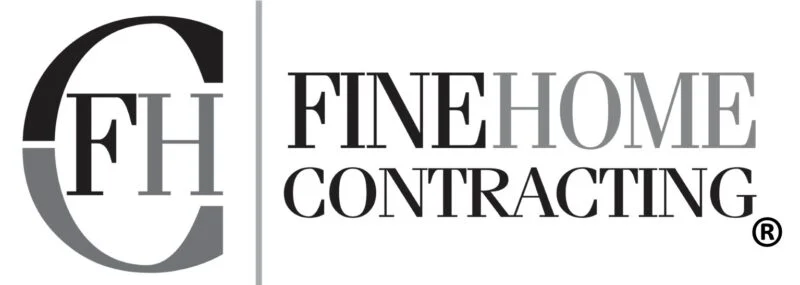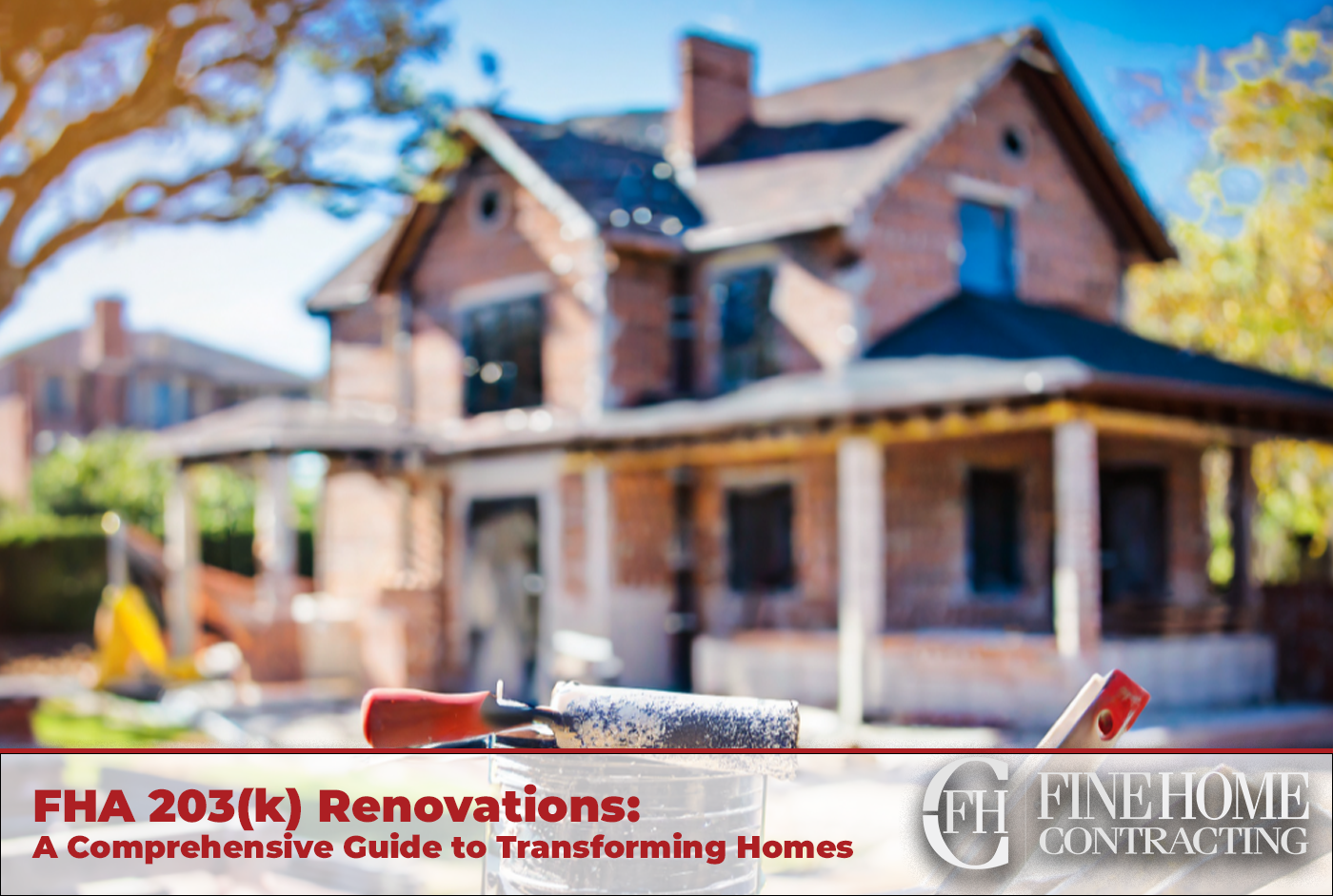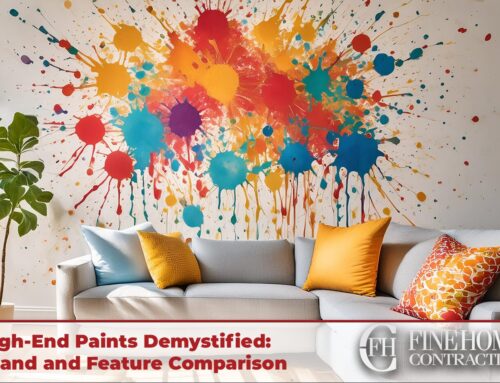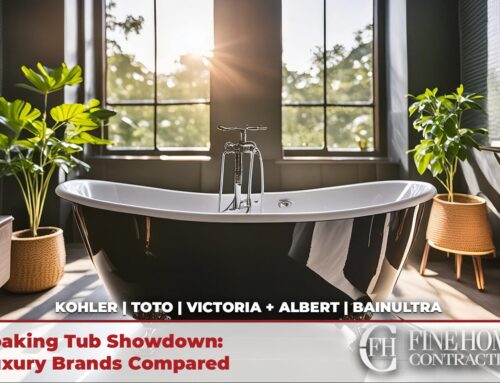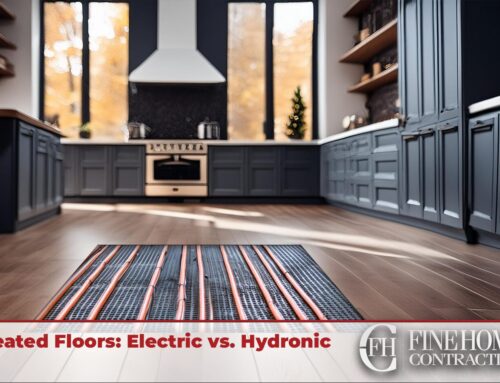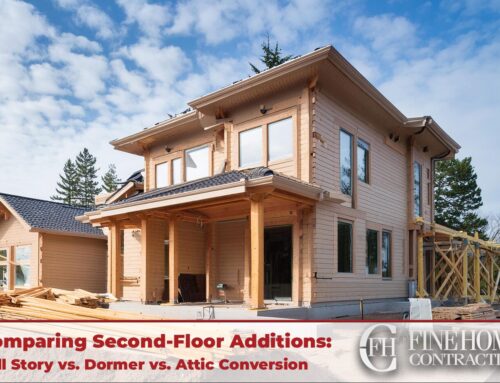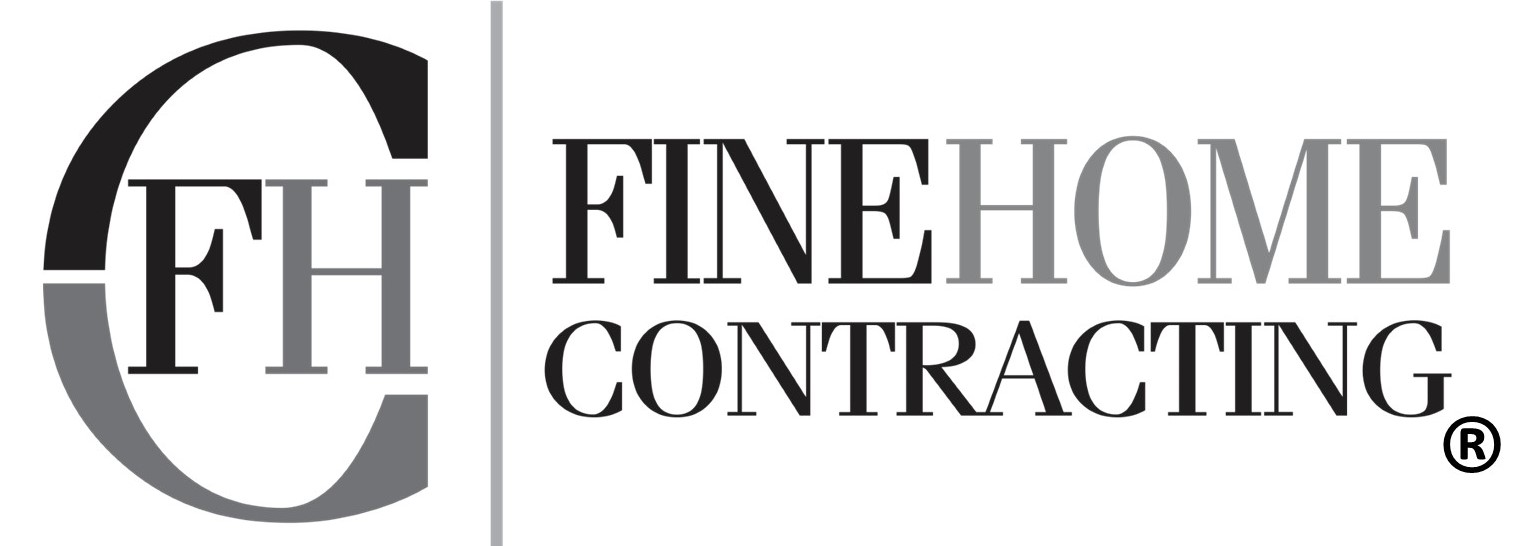Understanding FHA 203(k) Renovations
What is a 203(k)?
FHA 203(k) is a government-backed loan program designed to facilitate the purchase and renovation of homes. It allows homebuyers and homeowners to finance both the purchase (or refinancing) of a home and the cost of its rehabilitation through a single mortgage.
Full vs. Limited 203(k) Explained
Full 203(k): Ideal for extensive renovations, this option covers structural alterations, major repairs, and remodeling. It’s suitable for properties in need of significant rehabilitation. Requires a HUD Inspection.
Limited 203(k): Geared towards less extensive renovations, the limited 203(k) is perfect for projects like kitchen or bathroom upgrades. It comes with a cap on the total loan amount. Does not require a HUD Inspection. Cannot exceed $35,000.
Key Players in the 203(k) Process
Realtor
Assists in finding a property that meets the 203(k) criteria and guides buyers through the purchasing process.
Lender
Provides the FHA 203(k) loan, ensuring compliance with program requirements.
Inspector
Evaluates the property, identifies necessary repairs, and ensures the project aligns with FHA standards.
Contractor
Provides estimated costs of renovations and executes the renovation plan, working within the guidelines set by the FHA.
Getting Started with Your 203(k) Journey
Embarking on a 203(k) renovation requires careful planning and execution. Here’s a step-by-step guide to help you navigate the process:
- Verify that your property qualifies for a 203(k) loan. One-to-four unit dwellings that have been completed for at least a year are generally eligible.
- Budgeting and Loan Approval: Consult with a lender experienced in 203(k) loans. They will help you understand the loan terms, assess your financial situation, and get pre-approved.
- Create a Detailed Renovation Plan: Work with a contractor to develop a comprehensive renovation plan. The plan should include detailed cost estimates for each aspect of the project.
- Find a Qualified Inspector: Choose an FHA-approved inspector to evaluate the property and identify necessary repairs. Their findings will influence the renovation plan and loan approval.
- Select a Contractor: Look for a licensed contractor experienced with 203(k) projects. Ensure they understand the FHA guidelines and are willing to work within the program’s constraints.
- Submit the Loan Application: Once your renovation plan is complete, submit the loan application to your lender. Be prepared to provide documentation supporting your financial stability.
- Loan Processing: The lender reviews your application, verifies the documentation, and ensures it complies with FHA requirements. This process may take several weeks.
- Appraisal and Loan Approval: An FHA-approved appraiser assesses the property’s value after renovations. Once approved, the loan is finalized, and the funds are disbursed.
- Commence Renovations: With the loan secured, work with your contractor to initiate renovations. The contractor should follow the plan and FHA guidelines to ensure compliance.
- Inspection and Draws: Periodic inspections are conducted to verify the work’s completion at different stages. Draws are then released to cover the incurred expenses.
- Completion and Final Inspection: Once renovations are finished, a final inspection is conducted to ensure compliance with the approved plan and FHA standards.
- Loan Repayment: Repayments commence after the renovation is complete. The terms of repayment depend on the specific loan agreement with your lender.
Timeline Overview:
Pre-Approval: 1-3 weeks
Renovation Plan Development: 2-4 weeks
Loan Processing: 4-6 weeks
Appraisal and Loan Approval: 2-4 weeks
Renovation Commencement: Varies based on project scope
Final Inspection and Loan Repayment: Upon completion of renovations
Transforming a Starter Home with 203(k)
For those just entering the housing market, a 203(k) loan offers a unique opportunity to turn a fixer-upper into the perfect starter home. By wrapping your renovation costs and mortgage into one loan, oftentimes at a lower rate than otherwise available, 203ks open up more homes to first time buyers that would otherwise be out of reach due to needed repairs or additions. Using a 203k to renovate your starter home is a great option for getting a foot on the property ladder. Here’s a few of our favorite tips when starting out:
Identify Priority Areas: Assess which areas of the home need immediate attention, such as outdated kitchens or worn-out flooring.
Budget Wisely: With a limited budget, focus on essential renovations. Avoid plumbing and electrical work where possible to keep costs down.
Maximize Space: Optimize your layout and functionality by working with a designer or architect to review your floorplan designs. One common, albeit expensive, choice for 203ks is creating an open floorplan by knocking down non-structural walls. It may also be worth looking at finishing a basement or attic to reclaim existing, unused space.
Curb Appeal Matters: Enhance the exterior for a welcoming first impression. New paint, landscaping, and updated siding can work wonders.
Investment Strategy: Renovating a Duplex with 203(k)
First time owners are also given a unique investment opportunity through the 203k loan, should they choose to pursue it. Aspiring investors looking to maximize their real estate portfolio can leverage the 203(k) loan to renovate a duplex, live in one unit, and rent out the other. Here’s how:
Evaluate Potential Rental Income: Consider the rental market in your area and plan renovations that appeal to potential tenants.
Balance Aesthetics and Functionality: Design with future tenants in mind. Neutral colors and durable materials can withstand wear and tear.
Legal Considerations: Understand local zoning laws and regulations. Ensure the duplex conforms to all codes.
Upgrade Shared Spaces: Enhance common areas like the backyard or shared laundry facilities to attract quality tenants.
Tackling Home Damage with 203(k) – Beyond Insurance Coverage
When faced with damages not covered by insurance, the 203(k) loan can be a lifeline to funding for repairs. Here’s how to use it effectively:
Roofing Woes: Repair or replace a damaged roof to prevent further deterioration of the home’s structure.
Deck Dilemmas: Reinforce or replace a failing deck, creating a safe and enjoyable outdoor space.
Structural Repairs: Address foundational issues, ensuring the home’s stability and safety.
Mold Mitigation: If insurance falls short on mold remediation, the 203(k) can cover the costs.
203k FAQs
Yes, you can use a renovation loan to finance an investment property, particularly with Homestyle and Choice renovation loans, which are designed to accommodate not only owner-occupants but also investors and second-home buyers. These loan types offer the flexibility to finance a wide range of renovation projects, from basic repairs to extensive remodels, including luxury upgrades and improvements aimed at enhancing energy efficiency or disaster resilience. This makes them an attractive option for investors looking to increase the value of their properties or tailor them to specific rental markets.
FHA203k, Homestyle, and Choice renovation loans differ primarily in eligibility criteria, with FHA203k being more accessible for lower credit scores and focusing on 1-4 unit residential properties requiring various renovations, including structural changes. Homestyle loans cater to a broader audience including investors, offering higher loan limits and flexibility for nearly any type of renovation, including luxury updates, across diverse property types. Choice loans are similar to Homestyle in terms of flexibility and target audience but stand out for their emphasis on financing renovations that improve disaster resilience, energy efficiency, or accessibility, providing unique advantages for specific renovation goals.
Factors to consider include your credit score, the type and scale of your renovation, and your preferred interest rate structure.
The Standard 203k is suitable for major structural repairs, while the Limited 203k is ideal for minor renovations and cosmetic improvements. Standard 203ks may require a HUD inspection, but can exceed $35,000, while limited 203ks may not require an inspection, but cannot exceed $35,000.
Improving curb appeal on a budget can be achieved through landscaping, fresh paint, and small exterior updates, which typically cost between $1,000 to $5,000.
The cost of renovating a kitchen in CT can vary widely, but budget-friendly options often start at around $15,000, with more extensive upgrades averaging between $20,000 to $35,000.
Yes, an FHA 203k loan allows you to purchase and renovate a duplex in need of significant repairs.
The renovation timeline can vary, but it typically takes three to six months, depending on the extent of the renovations.
Remodeling an investment unit is a great way to attract higher-paying tenants: Current trends include open floor plans, energy-efficient features, and modern, durable finishes for both units.
The Standard 203k is for major renovations, while the Limited 203k is for less extensive projects on duplex properties. A limited 203k cannot exceed $35,000 in funding, but often does not require a certified HUD inspector as a standard 203k does.
Eligible renovations include structural repairs, room additions, energy efficiency upgrades, and much more. Consult your lender for a comprehensive list of qualified projects.
To qualify for an FHA 203(k) loan, you typically need a minimum credit score, sufficient income to cover loan payments, a property in need of renovation, and compliance with FHA lending limits.
The costs are similar to a traditional mortgage – down payment, closing costs, mortgage insurance. You’ll also pay the full costs of renovations on top.
The renovation period can range from 2-6 months. Simple cosmetic renovations may take 2-3 months, while larger projects replacing structural elements take 5-6 months.
No, 203(k) loans are only eligible for primary residences you plan to live in. Second homes or investment properties do not qualify.
You can qualify for a 203(k) loan with a credit score as low as 580. However, the higher your score, the better rate you’ll likely receive. Scores of 640+ are ideal.
Fine Home Contracting is one of Connecticut’s largest 203k contractors. For other options, we recommend checking 203kcontractors.com.
FHA203k Renovation Loans can be used for a variety of property types, including single-family homes, multi-unit properties (up to four units), and condominiums. However, the property must meet certain eligibility criteria, such as being the borrower’s primary residence or an investment property.
While it is possible to hire a contractor who is not familiar with 203k loans, it is advisable to work with a contractor experienced in handling such projects. Contractors who have prior experience with 203k loans understand the unique requirements and processes involved, which can help prevent delays and ensure a smoother renovation experience. Their expertise can also contribute to accurate cost estimates and adherence to FHA guidelines, reducing the risk of complications during the project. We always recommend using an FHA certified 203k specialist with good references.
A wide range of renovations can be financed through a 203k loan. Eligible improvements include structural repairs, room additions, kitchen and bathroom remodels, energy efficiency upgrades, and accessibility modifications. However, luxury improvements that are not considered necessary for the property’s functionality, such as a swimming pool or a tennis court, are generally not eligible for financing.
The duration of the renovation process with a 203k loan can vary depending on the complexity of the project and the contractor’s efficiency. On average, it may take several months to complete the renovation, including the time required for planning, obtaining permits, and carrying out the construction work. Working closely with your contractor and maintaining open communication can help ensure a smooth and timely renovation process.
Contractors working on a 203k loan project are paid through a specific payment process. Once the loan is approved, funds are typically held in an escrow account. The contractor submits invoices for completed work, and after verification, the lender releases funds to pay for the completed portion of the renovation. It’s crucial for contractors to keep accurate records, provide necessary documentation, and adhere to the agreed-upon payment schedule.
The cost of hiring a contractor for a 203k loan renovation can vary depending on factors such as the scope of work, location, and contractor’s rates. While it’s true that 203k contractors may charge higher fees due to their expertise in handling these specialized loans, it’s essential to consider the benefits they bring. They are experienced in navigating the complexities of 203k loans, ensuring compliance with FHA guidelines, and managing the renovation process efficiently.
Yes, it is possible to act as your own contractor on a 203k loan. However, it’s important to note that being your own contractor requires extensive knowledge of construction and project management. Additionally, you will need to meet the FHA guidelines for self-contracting, provide detailed plans and cost estimates, and assume full responsibility for the project’s successful completion.
The FHA 203k loan is a renovation or construction loan, that is backed by the Federal Housing Administration. Both buyers and refinancing customers can combine the traditional “home improvement” loan with a standard FHA mortgage, which allows the homeowners to borrow their renovation costs.
